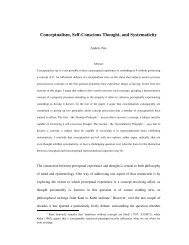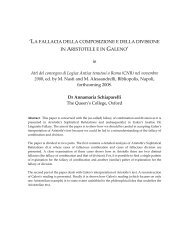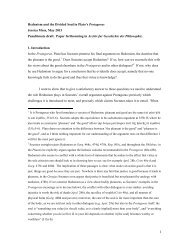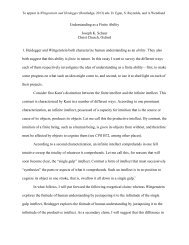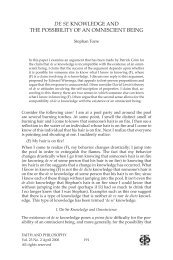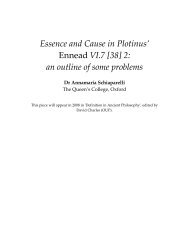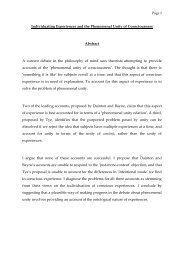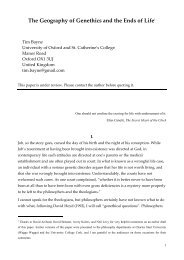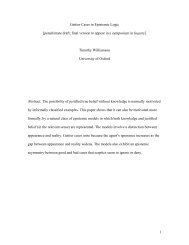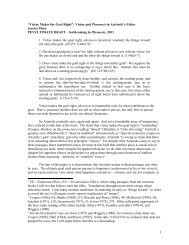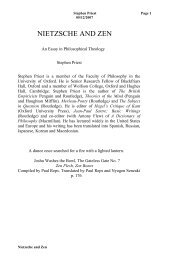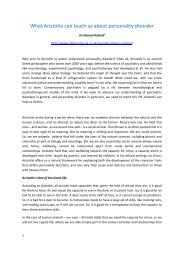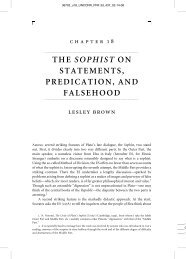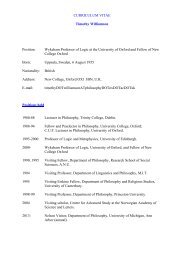Between Saying and Doing: Towards an Analytic Pragmatism
Between Saying and Doing: Towards an Analytic Pragmatism
Between Saying and Doing: Towards an Analytic Pragmatism
Create successful ePaper yourself
Turn your PDF publications into a flip-book with our unique Google optimized e-Paper software.
Br<strong><strong>an</strong>d</strong>om<br />
If there were such things as me<strong>an</strong>ings that determine how it would be correct to use our<br />
expressions, then those me<strong>an</strong>ings would at least have to determine the inferential roles of those<br />
expressions: what follows from applying them, what applying them rules out, what is good<br />
evidence for or against doing so. But what follows from what depends on what else is true—on<br />
laws of nature <strong><strong>an</strong>d</strong> obscure contingent facts—that is, on what claims c<strong>an</strong> serve as auxiliary<br />
hypotheses or collateral premises in those inferences. If we look at what practical abilities are<br />
required to deploy various bits of vocabulary—at what one has to be able to do in order to count<br />
as saying something with them—we do not find <strong>an</strong>y special set of these whose practical<br />
signific<strong>an</strong>ce c<strong>an</strong> be understood as pragmatically distinctive of sem<strong>an</strong>tically necessary or<br />
sufficient conditions. 9<br />
Quine thought one could save at least the naturalist program by retreating sem<strong>an</strong>tically to the level of<br />
reference <strong><strong>an</strong>d</strong> truth-conditions. James <strong><strong>an</strong>d</strong> Dewey appeal to the same sort of methodological<br />
pragmatism in support of more sweeping sorts of sem<strong>an</strong>tic revisionism—pursuing programs that<br />
Rorty, for inst<strong>an</strong>ce, argues should be understood as more rejectionist th<strong>an</strong> properly revisionist. And under the<br />
b<strong>an</strong>ner “Don’t look to the me<strong>an</strong>ing, look to the use,” Wittgenstein further radicalizes the<br />
pragmatist critique of sem<strong>an</strong>tics. Pointing out to begin with that one c<strong>an</strong>not assume that uses of<br />
singular terms have the job of picking out objects, nor that declarative sentences purport to state<br />
facts, he goes on to deny, in effect, that such uses even form a privileged center, on the basis of<br />
which one c<strong>an</strong> underst<strong><strong>an</strong>d</strong> more peripheral ones. (“L<strong>an</strong>guage has no downtown.”) Of course there<br />
is a lot going on in the later Wittgenstein, but I am going to engage in the doubly risky enterprise of both focusing<br />
on a few lessons that are of particular import<strong>an</strong>ce to my story, <strong><strong>an</strong>d</strong> trying to formulate them as explicit principles—<br />
not a kind of undertaking he either indulges in himself or encourages in others.<br />
9<br />
Ibid.<br />
LL1 Text.rtf 8 11/8/2007



